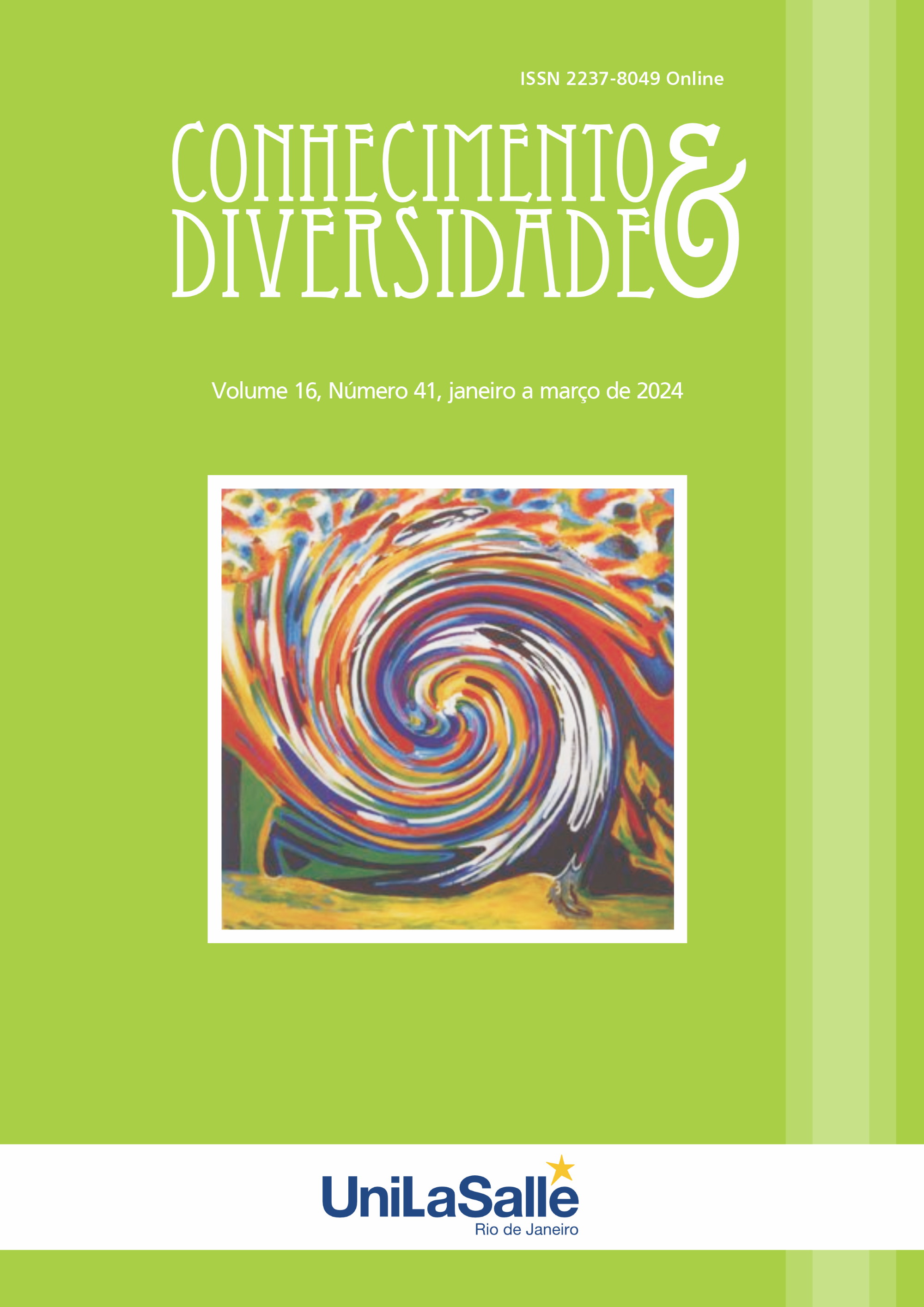DISTANCE EDUCATION
AN ADAPTIVE APPROACH TO LEARNING IN THE AGE OF INFORMATION AND KNOWLEDGE
DOI:
https://doi.org/10.18316/rcd.v16i41.11521Palabras clave:
educational system, pedagogical conditions, distance education, distance learningResumen
This study focuses on global trends in the development of education, with a special emphasis on distance learning. The current state and prospects for the development of this form of education both abroad and in Ukraine are considered. Emphasis is placed on the analysis of key challenges and potential threats to the national interests of Ukraine in the context of the lag in the implementation and integration of distance learning. Special attention is paid to recommendations for the popularization of distance learning in Ukraine. Specific measures aimed at improving the quality and accessibility of distance education are proposed. This includes the development and implementation of the latest technological solutions, educational programs that meet international standards, as well as expanding the network of access to educational resources for all categories of the population. The study also includes an analysis of successful world practices in the field of distance education that can be adapted for the Ukrainian context. Studying the experience of other countries makes it possible to determine effective strategies and methods that will contribute to the development of the educational sphere in Ukraine, making it more competitive and modern.
Citas
ANDERSON, T., & DRON, J. Three generations of distance education pedagogy. The International Review of Research in Open and Distributed Learning, 12(3), 80-97, 2011.
GARRISON, D.R., & VAUGHAN, N.D. Blended learning in higher education: Framework, principles, and guidelines. John Wiley & Sons, 2013.
PICCIANO, A. G. Theories and frameworks for online education: Seeking an integrated model. Online Learning, 21(3), 166-190, 2017.
SALMON, G. E-tivities: The key to active online learning (2nd ed.). Routledge, 2013.
SIEMENS, G., & TITTENBERGER, P. Handbook of emerging technologies for learning. University of Manitoba, 2009.
ANDERSON, C. A. Teaching in an online learning context: The experiences of primary school teachers in Scotland. European Journal of Open, Distance and E-Learning, 19(1), 26-39, 2016.
ROVAI, A.P. In search of higher persistence rates in distance education online programs. The Internet and Higher Education, 15(2), 89-89, 2013.
BATES, A. W., & SANGRÀ, A. Managing technology in higher education: Strategies for transforming teaching and learning. John Wiley & Sons, 2011.
GURI-ROSENBLIT, S. Distance education in the digital age: Common misconceptions and challenging tasks. Open Learning: The Journal of Open, Distance and e-Learning, 29(1), 35-52, 2014.
KEEGAN, D. Foundations of distance education. Routledge, 2013.
MOORE, M. G., & KEARSLEY, G. Distance education: A systems view of online learning. Cengage Learning, 2012.
VRASIDAS, C., & GLASS, G. V. Distance education: A research review. International Journal of Educational Telecommunications, 1(1), 9-57, 2014.
GARRISON, D.R., ANDERSON, T., & ARCHER, W. The first decade of the community of inquiry framework: A retrospective. The Internet and Higher Education, 13(1-2), 5-9, 2010.
KEEGAN, D. Theoretical principles of distance education. Routledge, 2013.
SALMON, G. E-moderating: The key to online teaching and learning. Routledge, 2014.
BERGE, Z. L., & MUILENBURG, L. Y. Handbook of mobile learning. Routledge, 2016.
HOLMBERG, B. Theory and practice of distance education. Routledge, 2017.
GURI-ROSENBLIT, S. Transition to online distance education through MOOCs: Challenges and implications. European Journal of Open, Distance and E-Learning, 21(1), 1-18, 2018.
BATES, A. W. Teaching in a digital age: Guidelines for designing teaching and learning. Tony Bates Associates Ltd., 2019.
GARRISON, D. R., ANDERSON, T., & ARCHER, W. Critical inquiry in a text-based environment: Computer conferencing in higher education. The Internet and Higher Education, 2(2-3), 87-105, 2017.
Descargas
Publicado
Número
Sección
Licencia
Derechos de autor 2024 Viktoriia Herman, Oleh Vesolovskyi , Inna Pysmenna , Alla Kolodyazhna, Ruslana Mnozhynska

Esta obra está bajo una licencia internacional Creative Commons Atribución 4.0.
Tal como recomienda el Public Knowledge Project, RCD adopta para sus artículos una licencia CREATIVE COMMONS: Attribution CC BY 4.0
Esta licencia permite que otros distribuyan, remezclen, adapten y desarrollen su obra, incluso con fines comerciales, siempre que le atribuyan a usted el mérito de la creación original.
Esta es la licencia más adecuada que se ofrece.
Recomendado para la máxima difusión y utilización de los materiales bajo licencia.



